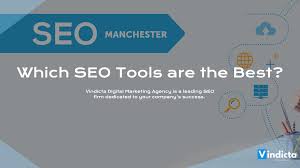Navigating the SEO Landscape in 2020: Trends and Strategies
The Evolution of SEO in 2020: Trends and Strategies
In the dynamic world of digital marketing, Search Engine Optimization (SEO) continues to play a crucial role in driving online visibility and organic traffic to websites. As we delve into the year 2020, SEO practices have evolved significantly, presenting new challenges and opportunities for businesses striving to rank high on search engine results pages (SERPs).
Key Trends Shaping SEO in 2020
Voice Search Optimization: With the rise of smart speakers and virtual assistants, optimising content for voice search has become imperative. Long-tail keywords and conversational phrases are now essential for capturing voice search queries.
Mobile-First Indexing: Google’s shift towards mobile-first indexing means that websites need to be mobile-responsive and provide a seamless user experience on smartphones and tablets to rank well in search results.
E-A-T (Expertise, Authoritativeness, Trustworthiness): Google’s emphasis on E-A-T signals a need for high-quality, authoritative content that demonstrates expertise in its field and builds trust with users.
Effective SEO Strategies for 2020
Content Quality: Creating valuable, engaging content that answers users’ queries is paramount. Focus on producing in-depth, well-researched articles that provide real value to your target audience.
Technical SEO: Pay attention to technical aspects such as site speed, mobile-friendliness, structured data markup, and secure HTTPS connections to enhance your website’s performance and user experience.
User Intent Optimization: Understand user intent behind search queries and tailor your content to meet those needs effectively. Align your keywords with the intent of users at different stages of the buyer’s journey.
The Future of SEO: Looking Ahead
In conclusion, SEO in 2020 is all about adapting to the changing landscape of digital marketing while staying true to fundamental principles of providing value and relevance to users. By staying abreast of emerging trends and implementing effective strategies, businesses can navigate the complexities of SEO and achieve sustainable online success.
Top 6 Advantages of SEO in 2020: Boosting Visibility, Credibility, and Long-Term Success
- Increased online visibility
- Targeted traffic
- Cost-effective marketing
- Builds credibility and trust
- Adaptable to algorithm changes
- Long-term results
Challenges of SEO in 2020: Navigating Competition, Algorithms, and More
- Increased competition
- Algorithm updates
- Technical complexities
- Time-consuming process
- Black hat practices
- Fluctuating rankings
Increased online visibility
In 2020, one of the key advantages of SEO is the significant boost in online visibility it offers to businesses. By implementing effective SEO strategies, companies can improve their search engine rankings, ensuring that they appear higher in search results. This increased visibility not only enhances brand awareness but also enables businesses to reach a wider audience of potential customers who are actively searching for products or services related to their industry. Ultimately, SEO acts as a powerful tool for driving organic traffic and expanding the digital footprint of businesses in the competitive online landscape of today.
Targeted traffic
By optimising for relevant keywords, SEO in 2020 drives targeted traffic to websites, significantly enhancing the chances of conversion. This strategic approach ensures that the right audience is directed to the website, increasing the likelihood of engaging with content that meets their specific needs and interests. By attracting visitors who are actively searching for products or services related to the business, SEO not only boosts website visibility but also maximises the potential for converting these leads into loyal customers.
Cost-effective marketing
In the realm of digital marketing in 2020, one significant advantage of SEO lies in its cost-effectiveness. When juxtaposed with traditional advertising approaches, SEO provides a budget-friendly avenue to connect with a broader audience and cultivate leads. By leveraging strategic SEO tactics, businesses can maximise their online visibility and engagement without incurring the high costs associated with traditional marketing channels. This affordability factor makes SEO a compelling choice for organisations looking to optimise their marketing efforts efficiently and economically.
Builds credibility and trust
High search engine rankings in 2020 play a crucial role in building credibility and trust for businesses. By appearing at the top of search results, companies demonstrate their authority and reliability to consumers, establishing themselves as reputable sources within their industry. This increased visibility not only enhances brand perception but also instils confidence in potential customers, ultimately leading to greater trust and engagement with the business.
Adaptable to algorithm changes
One significant advantage of SEO in 2020 is its adaptability to algorithm changes. SEO strategies can be flexibly adjusted to align with the latest updates in search engine algorithms, allowing websites to maintain their effectiveness in ranking. By staying responsive to algorithm shifts and refining tactics accordingly, businesses can ensure that their online presence remains optimised for improved visibility and organic traffic.
Long-term results
Implementing effective SEO practices can lead to sustained organic traffic growth over time, providing lasting benefits for businesses. By focusing on long-term results, businesses can establish a strong online presence, increase visibility in search engine results, and ultimately drive continuous traffic to their websites. This sustainable approach to SEO not only boosts brand awareness but also generates consistent leads and conversions, positioning companies for success in the competitive digital landscape of 2020 and beyond.
Increased competition
With the landscape of SEO in 2020, one significant drawback is the heightened competition among businesses vying for top search engine rankings. As more companies recognise the value of SEO and allocate resources towards improving their online visibility, the competition for coveted positions on search engine results pages has become increasingly fierce. This increased competition poses a challenge for businesses looking to stand out in a crowded digital marketplace and underscores the importance of implementing strategic and innovative SEO tactics to maintain a competitive edge.
Algorithm updates
In 2020, one significant drawback of SEO is the constant flux of algorithm updates by search engines. These updates introduce new ranking factors and criteria, posing a challenge for website owners and digital marketers to stay abreast of the latest changes. The dynamic nature of search engine algorithms means that strategies that were effective yesterday may become obsolete tomorrow, requiring continuous monitoring and adaptation to maintain or improve search rankings. Keeping pace with these algorithmic shifts demands vigilance and agility in implementing SEO tactics to ensure sustained visibility and organic traffic for websites in an ever-evolving digital landscape.
Technical complexities
In 2020, one notable drawback of SEO is the technical complexities it entails. Managing elements such as site structure, schema markup, and mobile optimisation can pose challenges due to their intricate nature and the constant evolution of search engine algorithms. Implementing these technical aspects effectively requires a deep understanding of SEO best practices and ongoing updates to ensure optimal performance, making it a daunting task for those unfamiliar with the intricacies of search engine optimisation.
Time-consuming process
In the realm of SEO in 2020, one notable drawback is the time-consuming nature of the process. To attain substantial results through SEO, businesses must dedicate consistent effort and invest time in implementing strategies that may not deliver instant gratification. This aspect can be challenging for those seeking quick returns on their digital marketing endeavours, as SEO demands patience and a long-term perspective to yield meaningful outcomes.
Black hat practices
In the realm of SEO in 2020, a significant drawback lies in the prevalence of black hat practices. Despite search engine guidelines and best practices, some individuals persist in employing unethical tactics like keyword stuffing and link schemes to manipulate search rankings. These nefarious strategies not only compromise the integrity of search results but also pose a risk of penalties from search engines. Such black hat practices undermine the credibility of legitimate websites and hinder the overall effectiveness of SEO efforts, highlighting the importance of ethical and sustainable SEO approaches for long-term success.
Fluctuating rankings
In 2020, one significant drawback of SEO is the issue of fluctuating rankings. Search engine rankings are prone to volatility, influenced by factors such as algorithm updates and competitor tactics. This instability can result in unpredictable shifts in website visibility, making it challenging for businesses to maintain a consistent presence in search results. Adapting to these fluctuations requires continuous monitoring and adjustment of SEO strategies to mitigate the impact of sudden ranking changes on organic traffic and online visibility.






